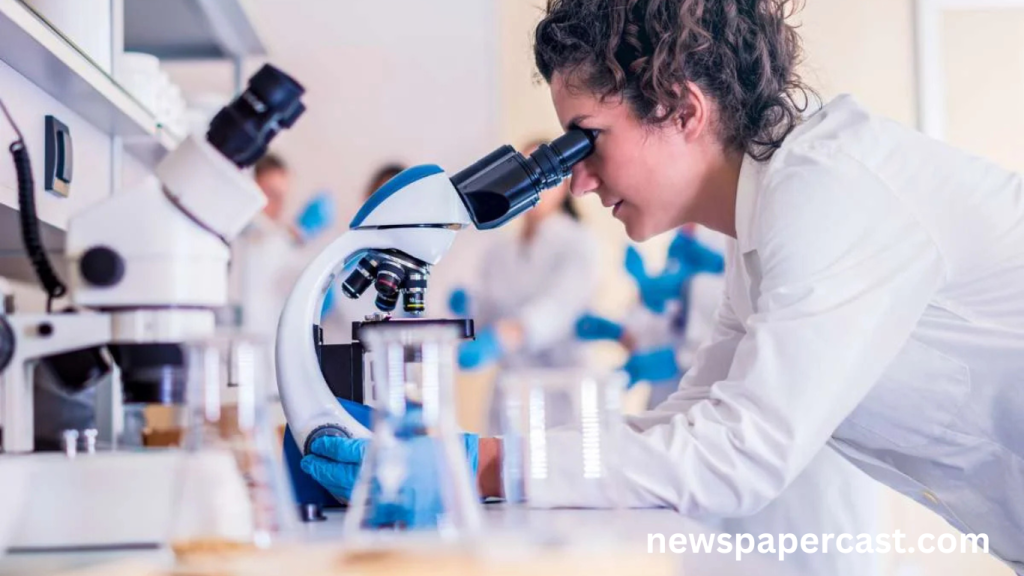Marie Curie: The Pioneer of Radioactivity
Marie Curie was the first woman to win a Nobel Prize and remains a trailblazer in physics and chemistry. Her groundbreaking research on radioactivity laid the foundation for advancements in medical treatment and energy production.
Rosalind Franklin: The Unsung Hero of DNA
Rosalind Franklin’s X-ray diffraction images were instrumental in discovering the DNA double helix structure. Although overshadowed by others, her work remains crucial to genetics and molecular biology.
Ada Lovelace: The First Computer Programmer
Ada Lovelace, often regarded as the world’s first computer programmer, wrote the first algorithm intended for a machine. Her vision of computing was far ahead of her time, earning her a place in the history of technology.
Sally Ride: Breaking Barriers in Space
Sally Ride made history as the first American woman to travel to space. Her work as an astronaut and advocate for science education continues to inspire young girls to pursue careers in STEM fields.
Jane Goodall: Revolutionizing Primatology
Jane Goodall’s groundbreaking research on chimpanzees changed our understanding of animal behavior and human evolution. Her conservation efforts and advocacy for animal rights have made her an international icon.
Dorothy Hodgkin: The Chemist Who Decoded Molecules
Dorothy Hodgkin’s discovery of the molecular structure of penicillin and vitamin B12 earned her a Nobel Prize in Chemistry. Her research has had a lasting impact on chemistry and medicine, saving millions of lives.
Read More : The Origins of Cerberus, and What the Three-Headed Dog Represents
Mae Jemison: A Multifaceted Trailblazer
Mae Jemison became the first African American woman in space, but her contributions extend beyond space exploration. As a doctor, engineer, and advocate for science education, Jemison inspires future generations.
Grace Hopper: The Mother of Computer Programming
Grace Hopper’s innovations in computer programming laid the groundwork for modern software development. Her development of the first compiler is critical to the programming languages used today.
Barbara McClintock: Unlocking the Mysteries of Genetics
Barbara McClintock’s discovery of “jumping genes” revolutionized our understanding of genetics. Her pioneering work in cytogenetics earned her a Nobel Prize and continues to influence genetic research.
Maria Telkes: Solar Energy Innovator
Maria Telkes was a pioneering scientist in the field of solar energy. Her development of solar-powered devices, such as solar distillers, laid the groundwork for the sustainable energy technologies we use today.
Frequently Asked Questions
Who was the first woman to win a Nobel Prize in science?
Marie Curie was the first woman to win a Nobel Prize, receiving it in both Physics and Chemistry.
What was Rosalind Franklin’s contribution to science?
Rosalind Franklin’s X-ray diffraction images were essential in discovering the structure of DNA.
What did Ada Lovelace do in the field of computing?
Ada Lovelace wrote the first algorithm designed for a machine, making her the first computer programmer.
How did Sally Ride contribute to space exploration?
Sally Ride became the first American woman in space, paving the way for future women in STEM.
What is Jane Goodall known for?
Jane Goodall is known for her groundbreaking research on chimpanzees and her lifelong efforts in conservation.
What did Dorothy Hodgkin discover?
Dorothy Hodgkin’s work on the molecular structure of penicillin and vitamin B12 earned her the Nobel Prize.
What is Mae Jemison’s legacy?
Mae Jemison is the first African American woman in space and a passionate advocate for science education.
What did Grace Hopper contribute to computer science?
Grace Hopper developed the first compiler, enabling modern programming languages and revolutionizing computer science.
Conclusion
These ten women in science revolutionized their fields with groundbreaking discoveries and innovations. Their contributions continue to inspire and empower future generations to break barriers and make lasting impacts on the world. Their legacy proves that science has no gender and that anyone, regardless of background, can change the world.

